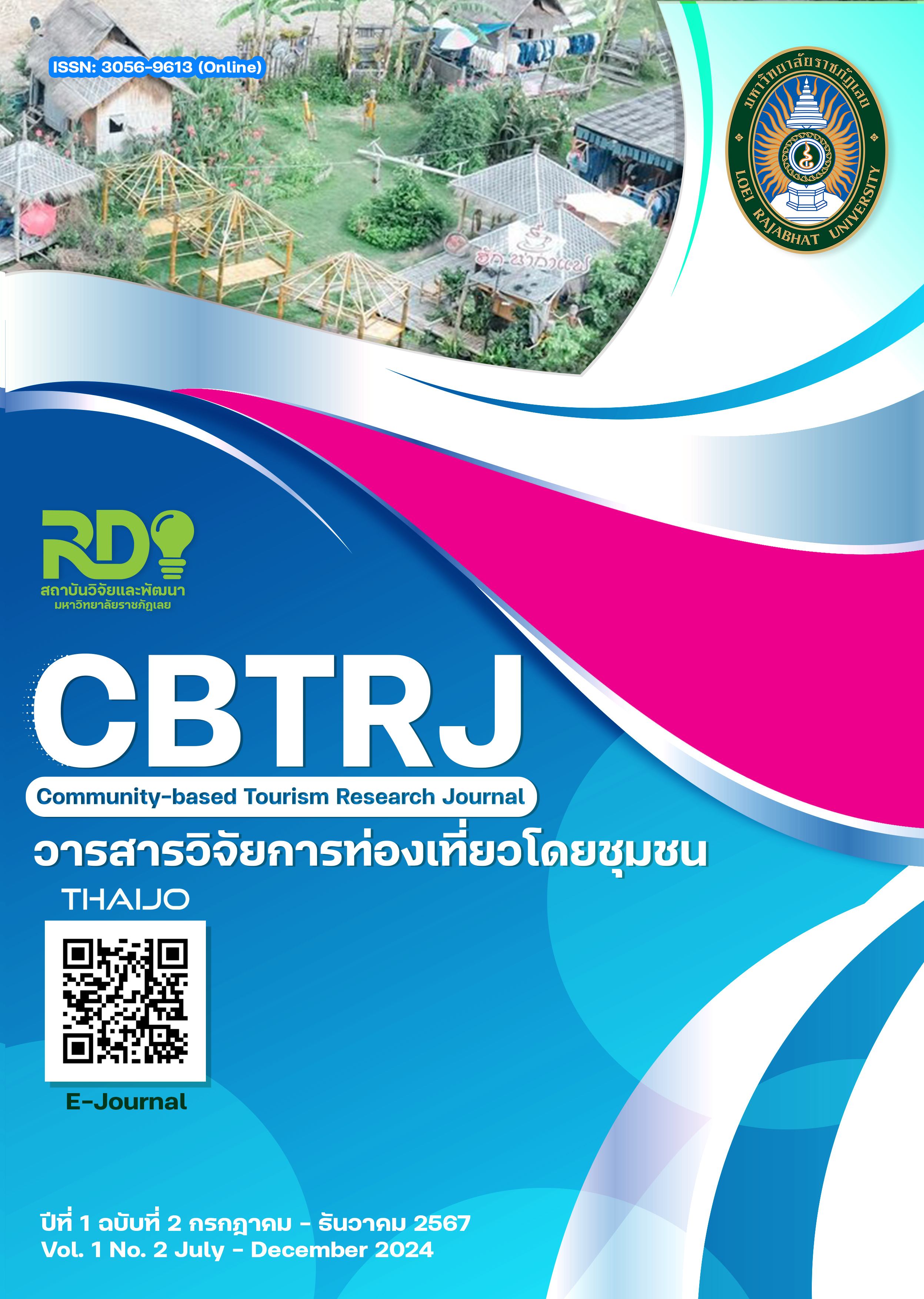The Potential of Community-Based Tourism Development Under the Low-Carbon and Sustainability Criteria: A Case Study of Tham Phuea Phordee Community Enterprise, Wang Nam Khiao District, Nakhon Ratchasima Province
Keywords:
Community enterprise, Community-based tourism, Low-carbon TourismAbstract
The research study on the Potential of Community-Based Tourism Development Under the Low-Carbon and Sustainability Criteria: A Case Study of Tham Phuea Phordee Community Enterprise, Wang Nam Khiao District, Nakhon Ratchasima Province. This research aimed: 1) to assess the potential readiness for low-carbon tourism, and 2) to evaluate low-carbon tourism criteria at Tham Phuea Phordee Community Enterprise, Wang Nam Khiao District, Nakhon Ratchasima Province.
The results showed that the assessment of low-carbon tourism potential, based on seven criteria for evaluating tourism business development potential, scored 50 points. Combined with four criteria for evaluating low-carbon tourism sustainability, the total score was 93.57 points, which was considered excellent. Recommendations for developing the community enterprise include: 1) seeking support from relevant agencies regarding plastic reduction, 2) educating the community about carbon emission reduction, and 3) implementing waste separation campaigns in each village to reduce contaminated waste and improve management efficiency.
References
ASEAN Tourism Research Centre. (2020). ASEAN-China Centre Released ASEAN Tourism Overview. http://www.asean-china-center.org/english/2020-04/4862.html
Designated Areas for Sustainable Tourism Administration. (2015). Low Carbon Tourism. https://data.go.th/dataset/10dd2858-9576-4cec-b603-303396e3be06/resource/a5288282-e078-4263-bd7c-c77bde95f1f7/download/low-carbon-tourism.pdf
Jaiua, M. (2022). Low Carbon Tourism. School of Tourism and Service Industry, University of the Thai Chamber of Commerce. https://tourism.utcc.ac.th/
Mallika, T., Pokaratsiris, J., & Wannakanapol, P. (2019). Building assessment criteria based on low carbon tourism concept for resort hotel design in Koh Chang. (In Thai). Trat province. Journal, 17-39.
Ongtun, C., & Sangraksa, N. (2020). Best practice in low carbon tourism management: A case study of communities in eastern Thailand. (In Thai). Dusit Thani College Journal, 374-384.
Pattanachan, J. (2019). Community-based tourism management of Wat Tan community, Bang Sadet sub-district, Pa Mok district, Ang Thong province. (In Thai).
Sindecharak, T. (2021). Low carbon tourism: Perception and attitudes of tourists staying in establishments of the Designated Areas for Sustainable Tourism Administration (DASTA) network. (In Thai). Journal of Thai Hospitality and Tourism, 74-84.
Sunida, P., & Sinprachawong, U. (2018). Willingness to pay of tourists for low carbon tourism destination management: A case study of Koh Larn, Chonburi province. (In Thai). Journal of Economic Development Review, 81-102.
Weerabenjapon, L. (2012). Adaptation to low carbon society in energy consumption of people in Bangkok. (In Thai).






